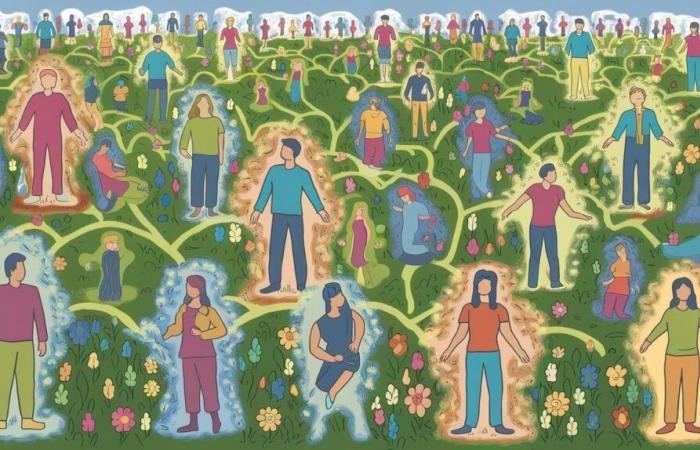What if our friendships were the key to better health? A recent study establishes a surprising link between social life and immunity. Ready to learn more to boost your well-being?
Do you keep putting off that coffee with friends? Maybe it’s time to rethink your priorities. According to a recent study, social interactions have a surprising positive impact on our immune system. Deciphering this discovery which could well make you want to increase the moments of conviviality.
When loneliness rhymes with inflammatory proteins
Researchers from the University of Cambridge and Fudan University in China analyzed data from more than 42,000 participants, followed for an average of 14 years. Their goal? Understand the biological mechanisms linking social isolation and loneliness to increased risk of disease.
Surprising result: no less than 175 proteins are associated with social isolation, and 26 with loneliness. Among them, a large part is involved in the immune response and inflammation. A link that would explain why isolated people are more prone to chronic illnesses such as heart problems, stroke, diabetes or arthritis.
ADM, the revealing protein
Scientists have notably identified the ADM protein, which regulates the stress response and the attachment hormone, oxytocin. High rates of ADM have been observed in people suffering from loneliness, suggesting that their immune system fights infection – real or perceived as such.
Furthermore, a high level of ADM is associated with changes in certain brain regions involved in emotions and social processes. A finding which highlights the impact of loneliness on our mental health.
Proteins that predict disease
More than half of the proteins linked to social isolation and loneliness are also significantly associated with an increased risk of heart disease, type 2 diabetes, stroke and death. A high rate of ADM, for example, is correlated with a 58% increase in mortality risk.
It is important for your physical and mental health not to let yourself become disconnected from those around you and feel alone.
Barbara Sahakian, professor of psychiatry and co-author of the study
Cultivating your friendships, a healthy gesture
To prevent loneliness and isolation, researchers recommend increase opportunities to build relationships. Whether it’s volunteering, participating in group physical activity, or participating in a book club, the key is to cultivate authentic and supportive relationships.
- Give your time for a cause that is close to your heart
- Join a sports team or walking club
- Share your passions within a group
- Initiate moments of conviviality with your neighbors
- Dare to be vulnerable to deepen your connections
Also remember that you can act to break the solitude of others. A simple phone call, a game of cards or a shopping trip can make all the difference for an isolated person. So, ready to make your friendships your best health ally?






